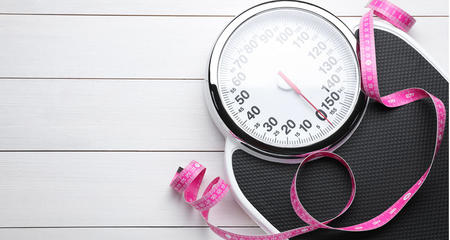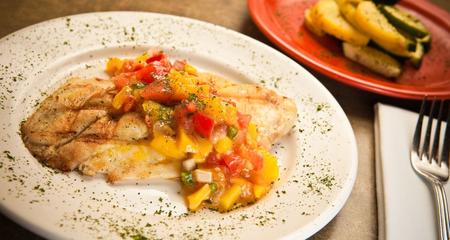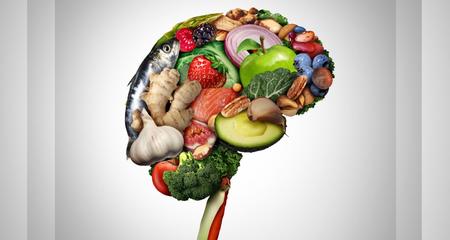How to Eat After Bariatric Surgery
After bariatric surgery, your meal portions are much smaller. Your new diet helps you progress with weight loss in a nutritionally sound manner to reach your health goals. Eating a variety of foods will help you obtain adequate protein, vitamins and minerals.
To help increase the variety in your diet, the Bariatric Surgery Program is offering a selection of recipes for you to enjoy. Many of our recipes were shared by individuals who have undergone weight loss surgery. All of the recipes provided have been reviewed by our registered dietitians for optimal nutritional content. (Be sure to review our “Nutrition Basics” below for additional information.)
Please note that recipes may need to be modified based on your own gastric bypass diet stage. If you have any questions about using the recipes offered here, please consult your health care provider.
We add new recipes at regular intervals, so please check in often. Bon Appétit!
Appetizers, Sides and Snacks
- Balsamic Dijon Mustard Dressing
- Bean Spread
- Classic Hummus
- Cool Ranch Veggie Pizza
- Creamy Cauliflower Puree
- Light Alfredo Sauce
- Spicy Deviled Eggs
- Shrimp Ceviche
- Peanut Powder Salad Dressing
- Protein Packed Pesto
- Spicy Avocado Spread
- Squash Apple Bake
- Tzatziki Greek Yogurt and Cucumber Sauce
Breakfast Recipes
- Broccoli, Egg and Cheese Bake
- Cheesy Crustless Quiche
- Cottage Cheese High-Protein Pancakes
- Egg-Chilada
- Egg Muffins
- Good Morning Casserole
- High-Protein Pumpkin Pie Oatmeal
- Peanut Butter and Jelly Pancakes
- Spinach Frittata
- Stuffed French Toast
- Strawberry Breakfast Wrap
- Tofu and Broccoli Quiche
- Yogurt Breakfast Popsicles
Lunch and Dinner Recipes
- Apple and Tuna Sandwiches
- Asian Chicken Lettuce Wraps
- Asian Pork Tenderloin
- Baked Chicken with Vegetables
- Baked Tomatoes
- Black Bean and Brown Rice Casserole
- BBQ Roasted Salmon
- Cajun Chicken With Pepper Jack Cheese and Spinach
- Cheesy Stuffed Acorn Squash
- Cheesy Vegetarian Chili
- Chicken Casserole
- Chicken Cheese-Steak Wrap
- Chicken Rollantini With Spinach ala Parmigiana
- Cottage Cheese Bake
- Creamy Slow-Cooker Chicken
- Crunchy Tuna Patties
- Easy Chicken Tetrazzini
- Faux Fried Chicken
- Ginger Beef Stir Fry
- Greek Yogurt Chicken
- Grilled Chicken Caprese
- Lemon Broiled Orange Roughy
- Magically Moist Chicken
- Not Really Fried Rice
- Pan-Fried Rainbow Trout
- Peanut Applesauce Chicken
- Pork and Black Bean Verde Stew
- Provencal Chicken Slow Cooker
- Pumpkin and Black Bean Soup
- Slow-Cooker Chicken Taco Filling
- Slow-Cooker Chicken Tikka Masala
- Spicy Peanut Vegetarian Chili
- Stuffed Cabbage Rolls
- Sweet and Sour Pork
- Thai Tofu Quinoa Bowl
- Tuna or Chicken Salad
- Turkey Bean Enchilada
- Turkey Turnovers
- Whopper Veggie Burger
- Zucchini Boats
Bariatric - Friendly Dessert Recipes
- Cheesecake Pudding
- Cottage Cheese Fluff
- Creamy Pumpkin Spice Mousse
- Pumpkin-Ricotta Protein Pie
- Silky Chocolate Soy Dessert
- Fluffy" Jell-O
Quick Guide: Nutrition Basics for Bariatric Patients
As you continue to lose weight, it is important to develop and maintain healthy eating habits. Success with weight loss will depend on your adherence to nutritious food choices and avoiding snacking or “grazing” between meals. The stomach pouch created by your surgery is a tool you will need to become accustomed to in order to meet your weight loss goals. The following nutrition overview provides a few quick tips to keep you on the right track.
Stick with Protein-Rich Foods
Because your body cannot store protein, it needs a constant supply to repair and replace tissues that become worn out or damaged. Therefore, you need to eat protein every day to refresh your body’s basic protein needs. Aim for a minimum of 60 grams of protein each day. The gastric bypass or other bariatric surgery procedure reduces the capacity of the stomach to a very small volume. Therefore, protein-rich foods must be eaten with each meal to be sure the body gets enough to preserve lean muscle mass. We do not advise using high-calorie protein supplements or beverages. We recommend eating high protein-containing foods at the beginning of each meal. Lean proteins like fish, poultry, eggs and low-fat cottage cheese are just a few good choices.
Vitamins and Mineral Supplements
After gastric bypass or other bariatric surgery, you will not be able to eat the amount or variety of foods needed to meet recommended vitamin and mineral requirements through your diet alone. A high-potency multivitamin/mineral supplement with iron must be taken every day. Daily calcium and vitamin B12 supplements are also recommended to maintain adequate vitamin and mineral stores and prevent anemia and osteoporosis. Some patients require additional supplements after surgery. Your physician will determine your individual needs based on the results of lab work.
Limit Your Sugar and Fats
After gastric bypass or other bariatric surgery, a condition called dumping syndrome will occur if you eat foods high in sugar and fat (greater than 10 grams per serving). Symptoms of dumping syndrome include profound sleepiness, light-headedness, profuse sweating, rapid heart rate, cramping abdominal pain, nausea and diarrhea. Avoiding foods or liquids with high sugar and fat content will help prevent dumping syndrome. Sweets, candies, fruit juice, soda, high-fat meats and fried foods are examples of selections that may cause problems.
Virtual Visits Are Available
Safe and convenient virtual visits by video let you get the care you need via a mobile device, tablet or computer wherever you are. We'll assess your condition and develop a treatment plan right away. To schedule a virtual visit, call 414-777-7700.
More to Explore





